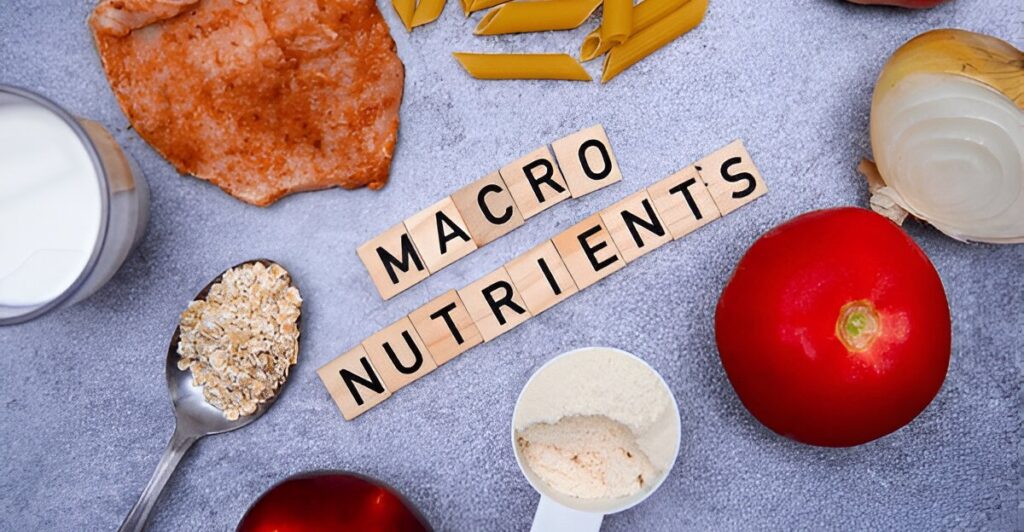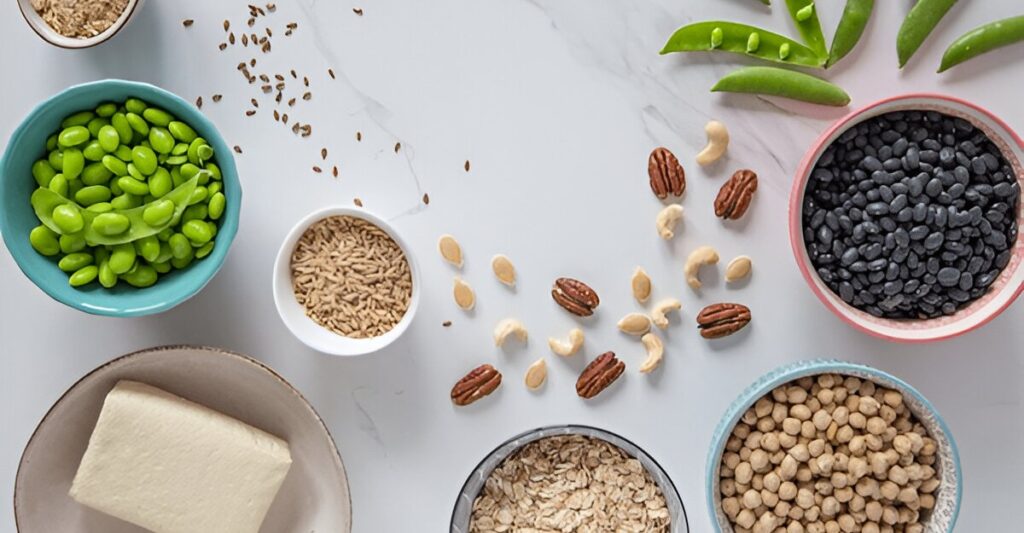Building muscle isn’t just about lifting weights—it’s about fueling your body with the right nutrients to support growth, recovery, and performance. Muscle nutrition is the cornerstone of any successful fitness plan, helping you maximize your workouts and achieve your strength goals. This guide explores the essentials of muscle nutrition, including the best foods, meal timing tips, and practical strategies to optimize your diet for muscle building.
Why Muscle Nutrition Matters
Proper nutrition is critical for muscle growth because it provides the building blocks your body needs to repair and strengthen muscle fibers after exercise. Without adequate muscle nutrition, your workouts may not yield the results you’re working toward. Here’s why it’s so important:
- Muscle Repair: Protein and amino acids help rebuild muscle tissue damaged during exercise.
- Energy Supply: Carbohydrates fuel your workouts, ensuring you have the stamina to push through tough sessions.
- Recovery Boost: Nutrients like healthy fats and micronutrients reduce inflammation and speed up recovery.
- Hormone Support: A balanced diet supports hormones like testosterone and growth hormone, which are key for muscle growth.
By prioritizing muscle nutrition, you’re giving your body the tools it needs to grow stronger and perform at its best.
Key Nutrients for Muscle Nutrition
To build muscle effectively, your diet should include the following nutrients in the right proportions:
1. Protein
Protein is the foundation of muscle nutrition, providing amino acids that repair and build muscle tissue. Aim for 0.7–1 gram of protein per pound of body weight daily, depending on your activity level. Top sources include:
- Chicken breast
- Lean beef
- Eggs
- Greek yogurt
- Tofu
- Whey or plant-based protein powder
2. Carbohydrates
Carbs are your body’s primary energy source, fueling intense workouts and replenishing glycogen stores in muscles. Focus on complex carbs for sustained energy, such as:
- Oats
- Brown rice
- Sweet potatoes
- Quinoa
- Whole-grain bread
3. Healthy Fats
Fats support hormone production and reduce inflammation, both of which are crucial for muscle growth. Include moderate amounts of:
- Avocados
- Nuts and seeds
- Olive oil
- Fatty fish like salmon
4. Micronutrients
Vitamins and minerals like vitamin D, magnesium, and zinc play a role in muscle function and recovery. Get these from a variety of fruits, vegetables, and whole foods.
How to Optimize Muscle Nutrition
Eating for muscle growth requires more than just choosing the right foods—it’s about timing, balance, and consistency. Follow these tips to make muscle nutrition work for you:
1. Eat Enough Calories
Muscle growth requires a calorie surplus, meaning you consume more calories than you burn. Use a calorie calculator to determine your needs, and aim for a surplus of 250–500 calories per day to support muscle gain without excess fat.
2. Time Your Meals
While total daily nutrient intake is most important, strategic meal timing can enhance results:
- Pre-Workout: Eat a meal with carbs and protein 1–2 hours before training (e.g., a banana with peanut butter or a chicken and rice bowl).
- Post-Workout: Consume a protein- and carb-rich meal or shake within 30–60 minutes after exercise to kickstart recovery.
- Spread Protein Intake: Divide your protein into 4–5 meals or snacks throughout the day to maximize muscle protein synthesis.
3. Stay Hydrated
Dehydration can impair performance and recovery. Drink at least 8–10 cups of water daily, and more if you’re training intensely or sweating heavily.
4. Plan and Prep Meals
Meal prepping ensures you have muscle-friendly meals ready to go, preventing you from skipping meals or resorting to unhealthy options. Batch-cook staples like grilled chicken, roasted sweet potatoes, and steamed broccoli for the week.
5. Consider Supplements
While whole foods should be your primary focus, supplements can complement muscle nutrition. Common options include:
- Whey Protein: Convenient for post-workout shakes.
- Creatine Monohydrate: Boosts strength and muscle growth.
- Branched-Chain Amino Acids (BCAAs): May support recovery during intense training.
Always consult a healthcare professional before adding supplements to your routine.
Muscle-Building Recipes for Optimal Nutrition
Here are three nutrient-packed recipes designed to support muscle nutrition. Each is high in protein, balanced with carbs and fats, and easy to prepare.
1. Chicken and Quinoa Power Bowl
Ingredients (Serves 4):
- 1 lb boneless, skinless chicken breast, cubed
- 1 cup quinoa, cooked
- 2 cups broccoli, steamed
- 1 avocado, sliced
- 2 tbsp olive oil
- 1 tsp garlic powder
- Salt and pepper to taste
Instructions:
- Heat olive oil in a skillet over medium heat. Season chicken with garlic powder, salt, and pepper, and cook for 6–8 minutes until done.
- Divide quinoa, broccoli, chicken, and avocado into four bowls.
- Drizzle with a little olive oil or your favorite low-calorie dressing.
Macros (per serving): ~400 calories, 35g protein, 30g carbs, 15g fat
2. Beef and Sweet Potato Skillet
Ingredients (Serves 4):
- 1 lb lean ground beef
- 2 medium sweet potatoes, diced
- 1 red bell pepper, chopped
- 1 tsp smoked paprika
- 1 tbsp olive oil
- Salt and pepper to taste
Instructions:
- Heat olive oil in a large skillet. Add sweet potatoes and cook for 10 minutes until softened.
- Add ground beef, bell pepper, paprika, salt, and pepper. Cook for 8–10 minutes until beef is browned.
- Divide into four containers for easy meal prep.
Macros (per serving): ~450 calories, 30g protein, 35g carbs, 18g fat
3. Protein-Packed Overnight Oats
Ingredients (Serves 2):
- 1 cup rolled oats
- 1 cup unsweetened almond milk
- 1 scoop vanilla whey protein powder
- ½ cup Greek yogurt
- 1 tbsp almond butter
- ½ cup blueberries
Instructions:
- In two mason jars, combine oats, almond milk, protein powder, and Greek yogurt. Stir well.
- Top with almond butter and blueberries, then refrigerate overnight.
- Enjoy cold or warmed up for a quick breakfast.
Macros (per serving): ~350 calories, 30g protein, 35g carbs, 10g fat
Common Muscle Nutrition Mistakes to Avoid
Even with the best intentions, these pitfalls can hinder your progress:
- Underestimating Calories: Eating too little can stall muscle growth. Track your intake to ensure you’re in a surplus.
- Overloading on Protein: More protein isn’t always better. Excess protein can be stored as fat if calorie needs are exceeded.
- Skipping Carbs: Cutting carbs too drastically can sap energy and impair workout performance.
- Ignoring Recovery Foods: Post-workout nutrition is critical for muscle repair. Don’t skip your post-gym meal.
Foods to Limit for Better Results
To optimize muscle nutrition, minimize these foods that can hinder progress:
- Sugary Snacks and Drinks: They provide empty calories and can lead to fat gain.
- Processed Foods: High in sodium and unhealthy fats, they can cause bloating and inflammation.
- Excess Alcohol: Heavy drinking can impair muscle recovery and lower testosterone levels.
Conclusion
Muscle nutrition is the key to unlocking your strength and fitness potential. By focusing on protein, carbs, healthy fats, and strategic meal timing, you can fuel your workouts, recover faster, and build lean muscle effectively. Start by incorporating nutrient-dense foods, prepping meals, and staying consistent with your diet. Ready to transform your body? Stock your kitchen with muscle-friendly foods and take your training to the next level today!


